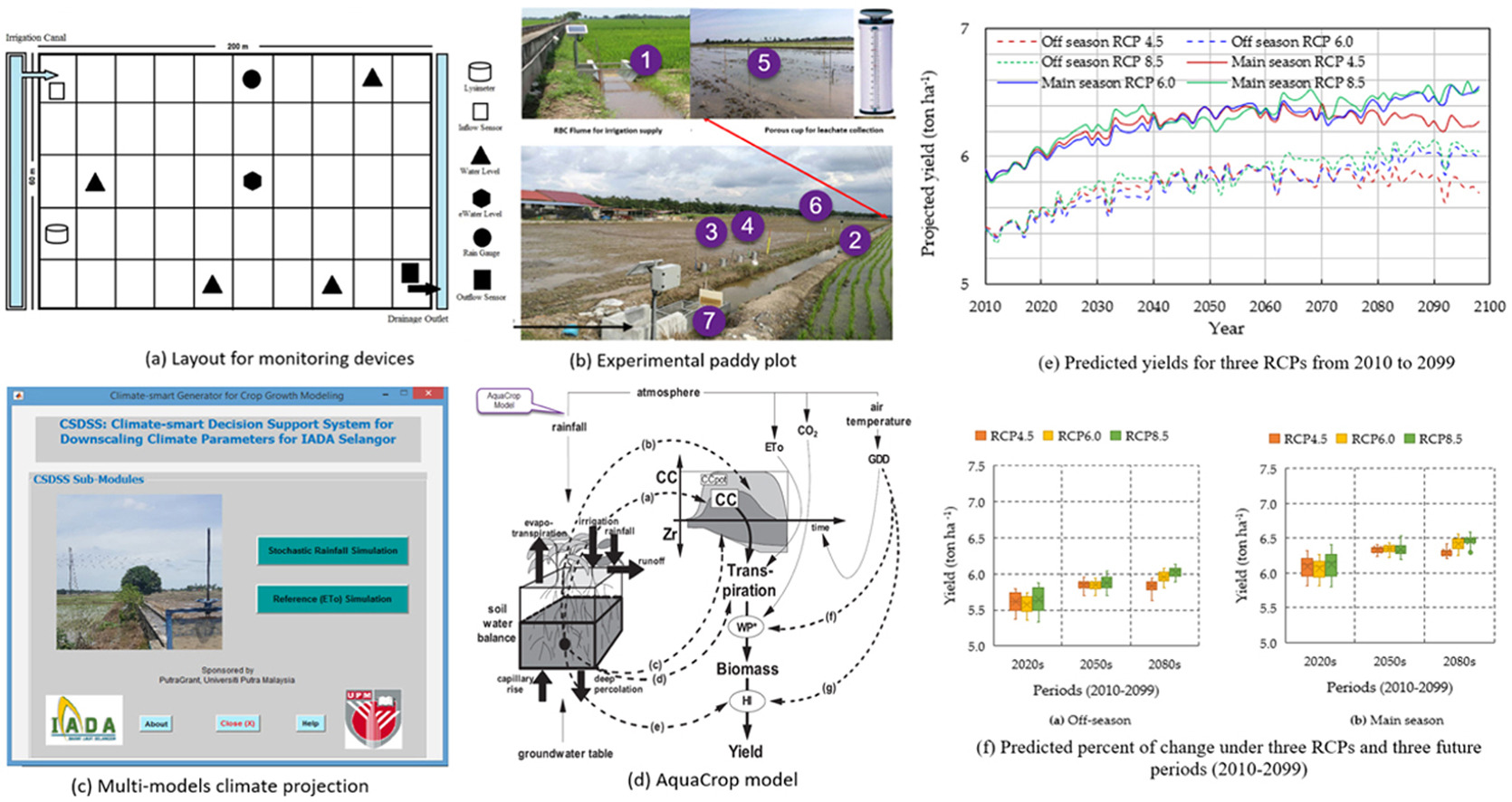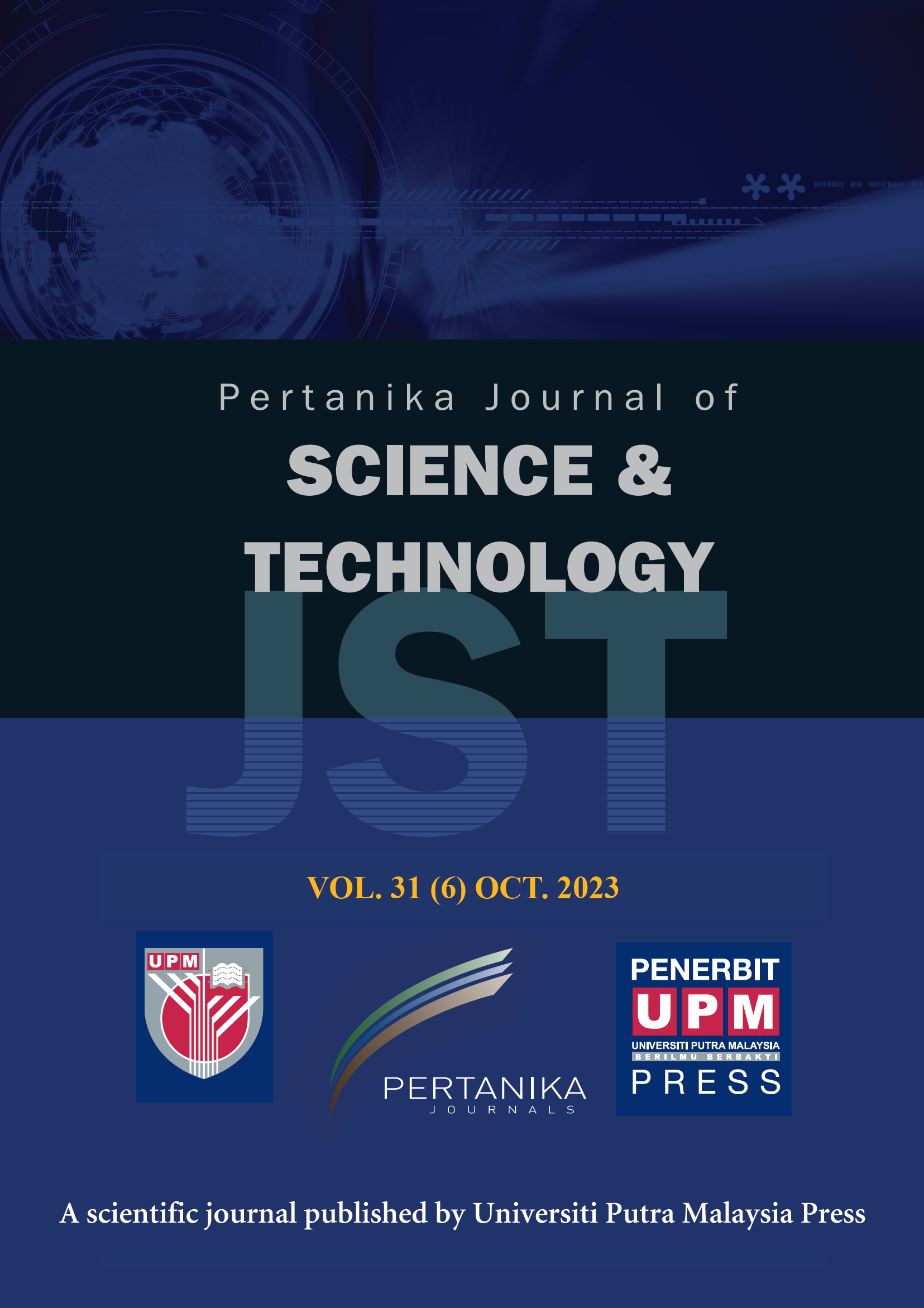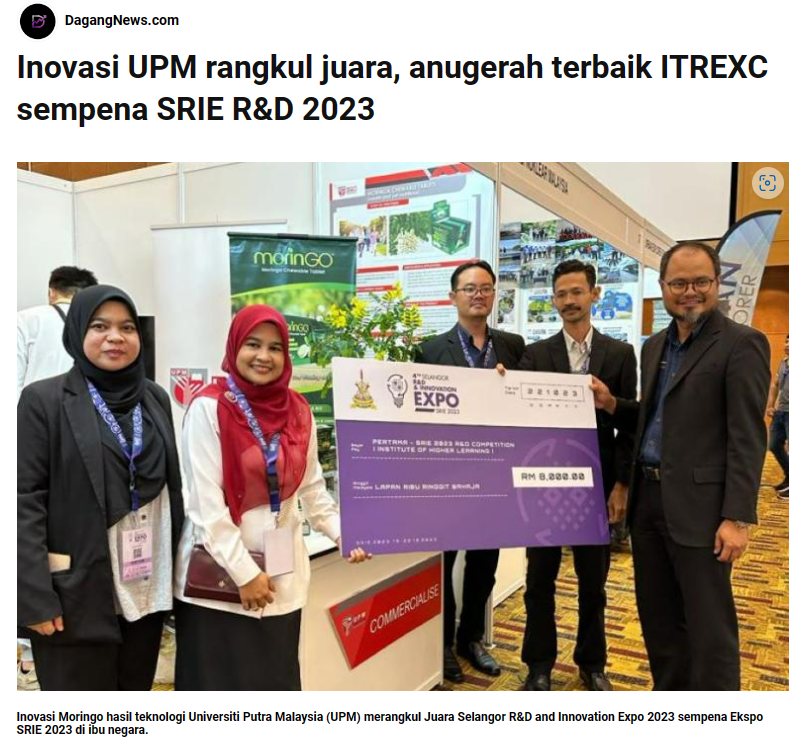Abstract
The yield of lowland rice is prone to climatic factors and farming practices, among which water management and weed control are crucial. Crop simulation models can help evaluating the impacts of these factors and practices on yield growth. This study assessed the impacts of climate, irrigation practices, and weed control measures on the yield of lowland rice by using FAO-AquaCrop model. Necessary data were generated by well-planned field experiments during two consecutive rice-growing seasons (off-/dry season: January–April and main-/wet season: July–October) in 2017. Ensemble climate data was downscaled from eighteen General Circulation Models (GCMs) under three Representative Concentration Pathway (RCP) scenarios (RCP4.5, RCP6.0 and RCP8.5) both for baseline (1976–2005) and future (2010–2099) periods. AquaCrop model was calibrated and validated with observed data with regard to Normalized Root-Mean-Square Error (NRMSE), Prediction Error (Pe), Mean Absolute Error (MAE), and Index of Agreement (d). The model simulated biomass, yield and productivity of rice satisfactorily. It predicted 13.6%, 14.1% and 15.3% increase in yield under RCP4.5, RCP6.0 and RCP8.5 emission scenario, respectively for the off-season in the future compared to the baseline period. The corresponding increase in yield is 13.9%, 14.5% and 15.2% for the main-season. The model simulated reduced yield under water stress and poor weed control, with yield reduction mounting to 65% under worse weed control. However, proper weed control and water management practices will likely augment yield under changing climate. The stress exerted by rising temperature on yield will likely be compensated by the ensuing increase in CO2 fertilization. The predicted susceptibility of rice yield to weed infestation and water stress under changing climate will help devising proper management practices for sustainable rice productivity in the future.

Authors : Abdusslam A.Houma, Md Rowshon Kamal, Md Abdul Mojid, Ahmad Fikri B.Abdullah, A.Wayayok
Date of Input: 02/08/2021 | Updated: 02/08/2021 | salehaharon
MEDIA SHARING





























